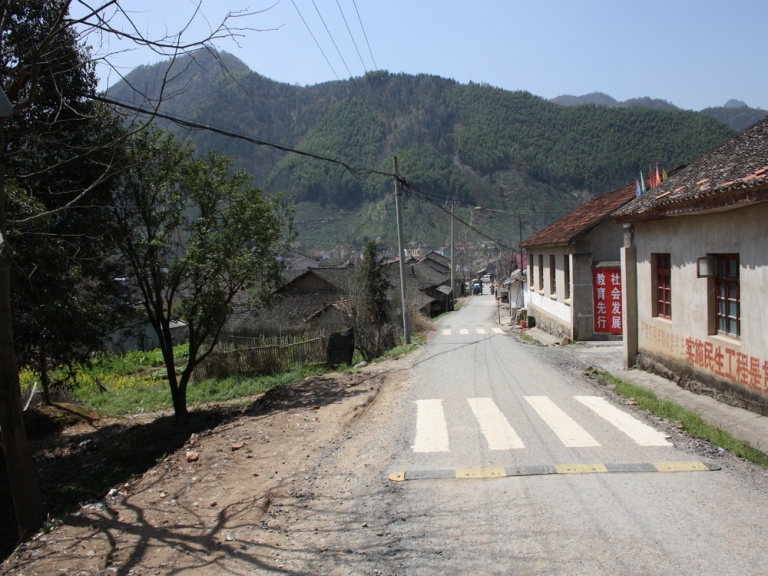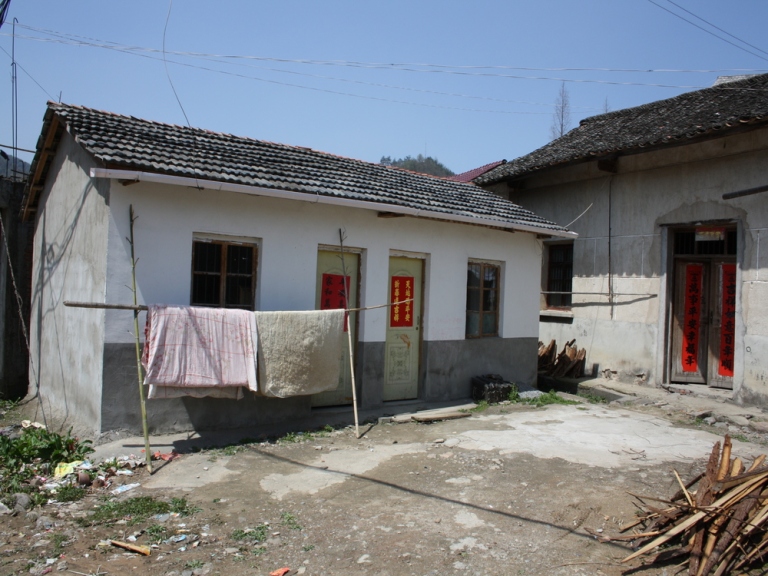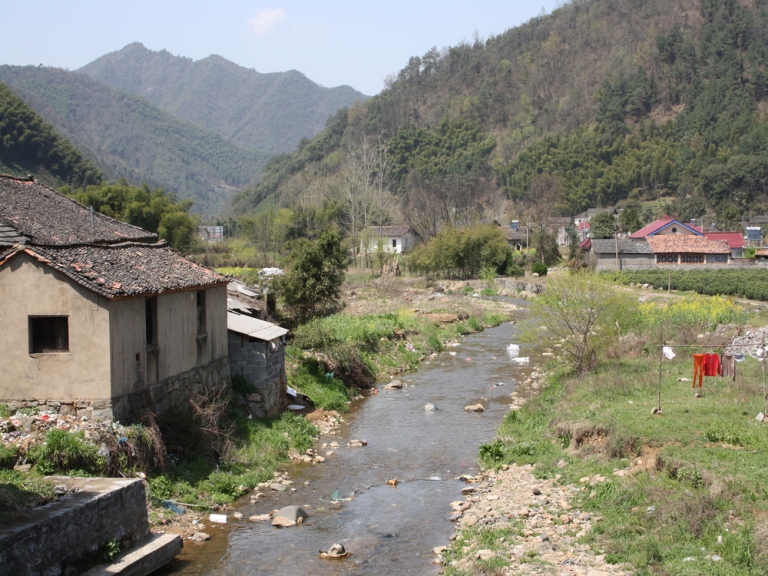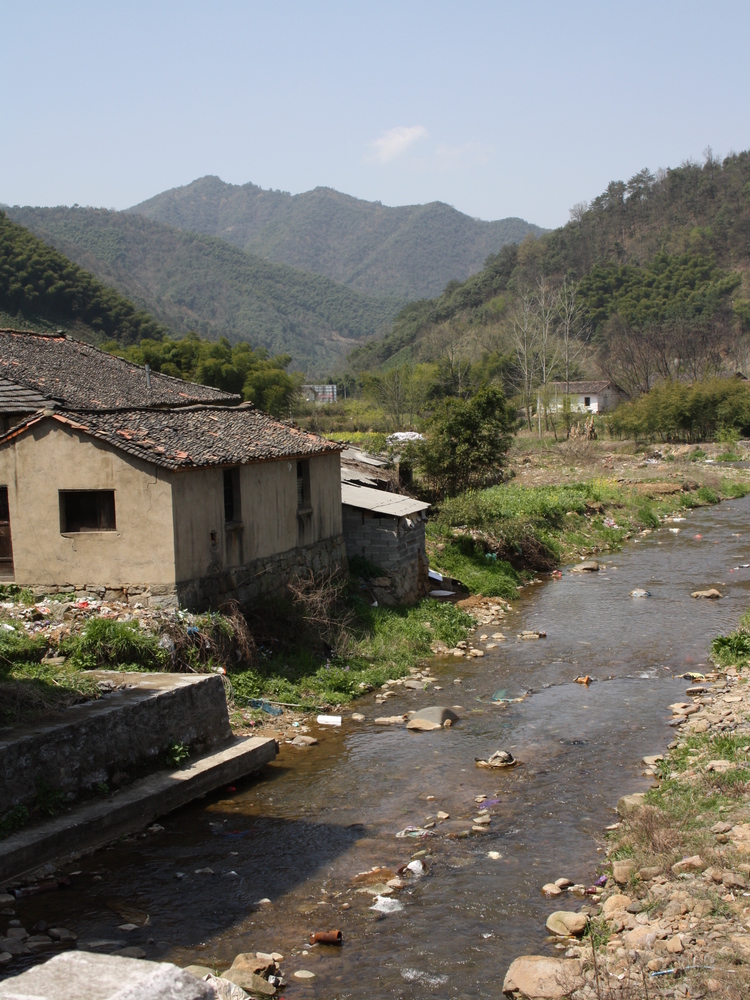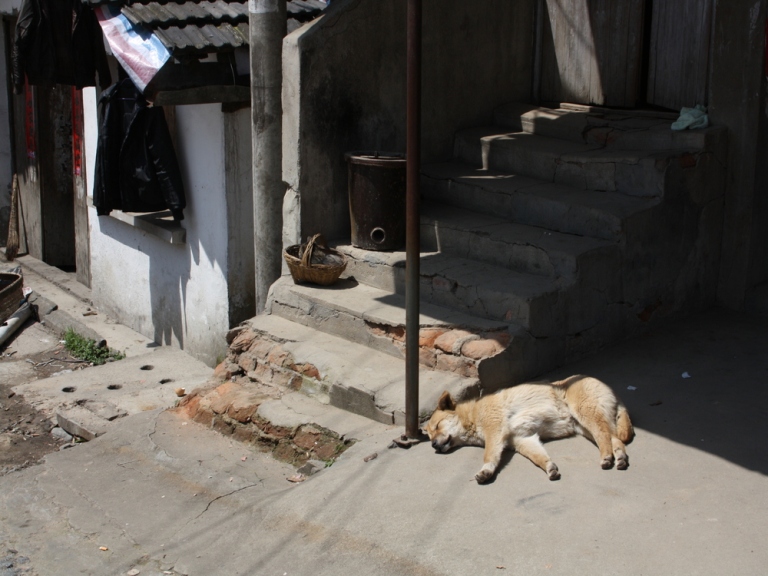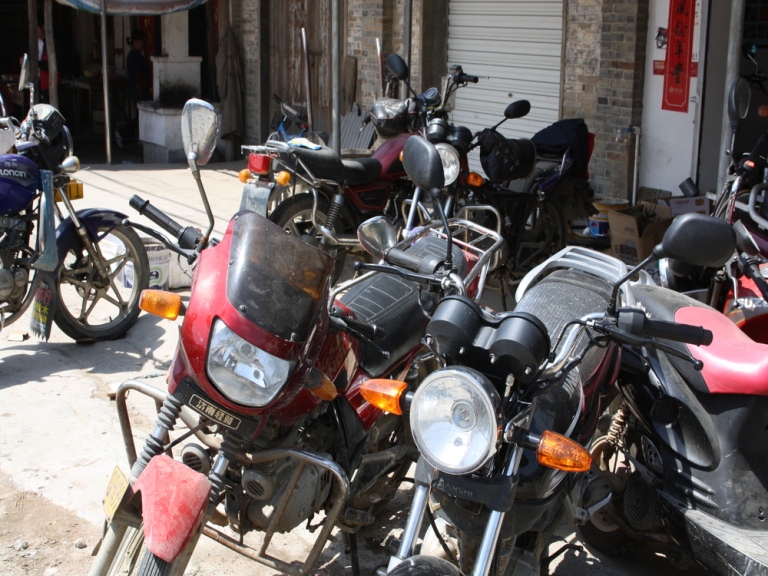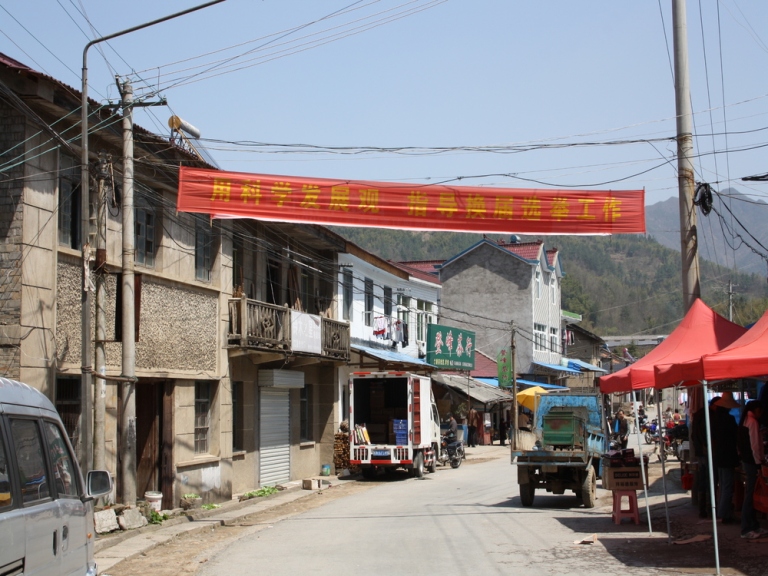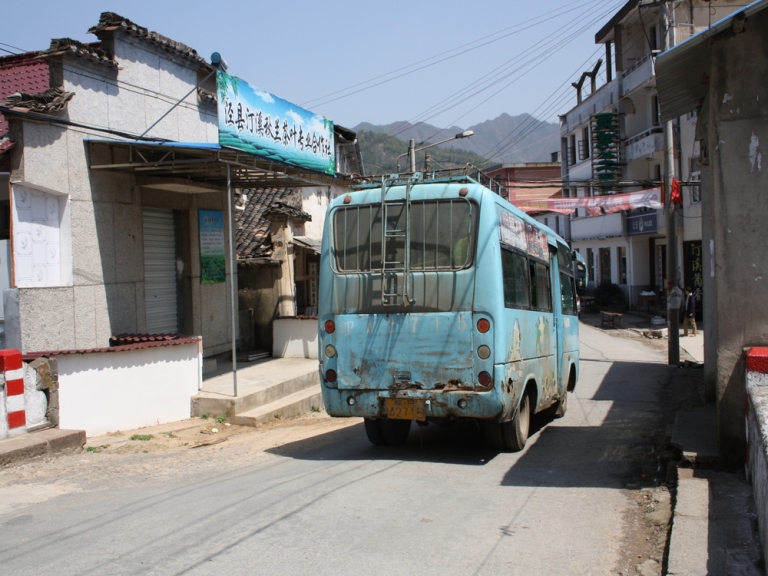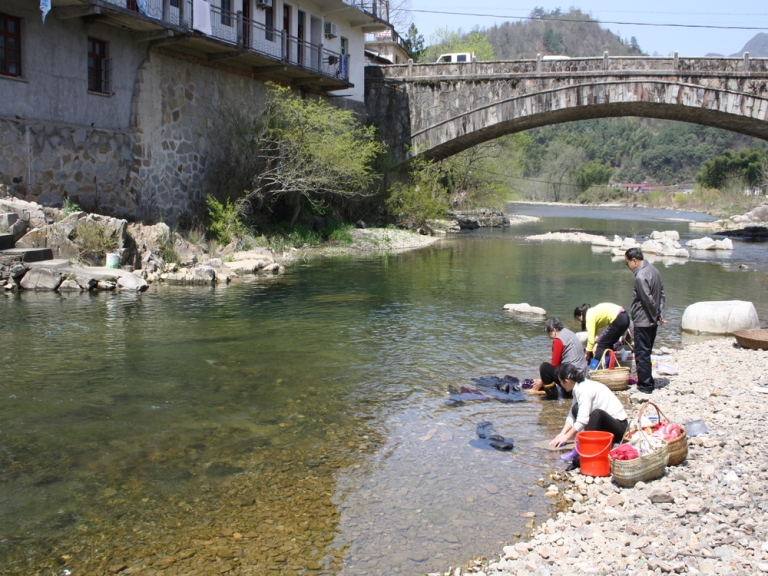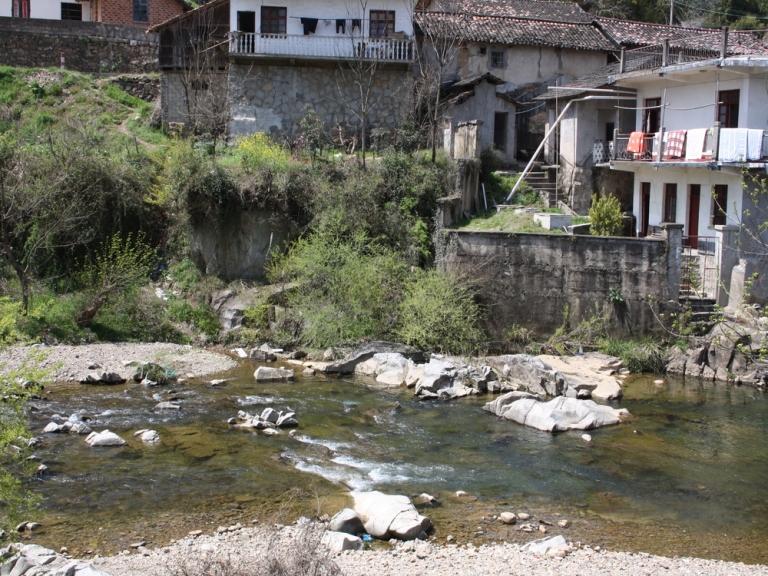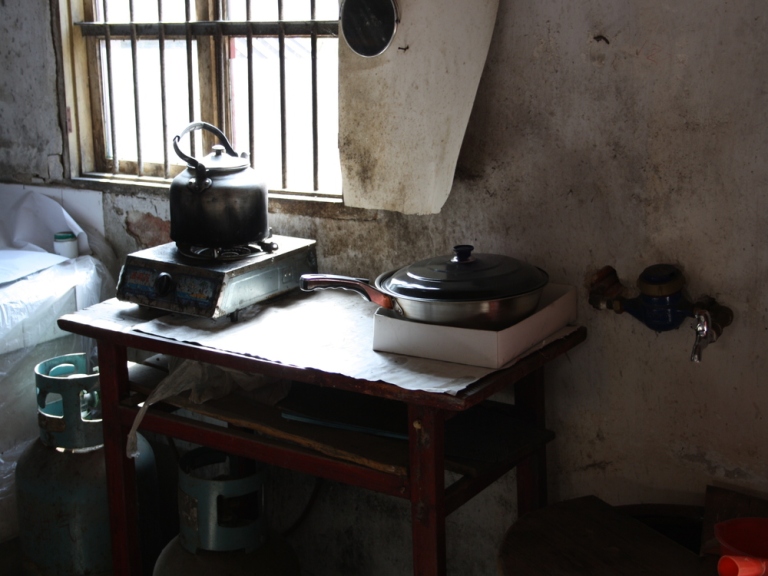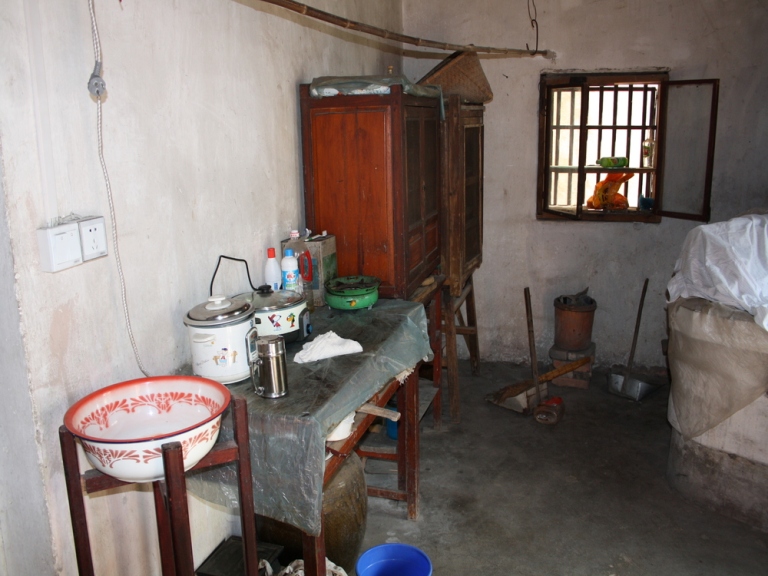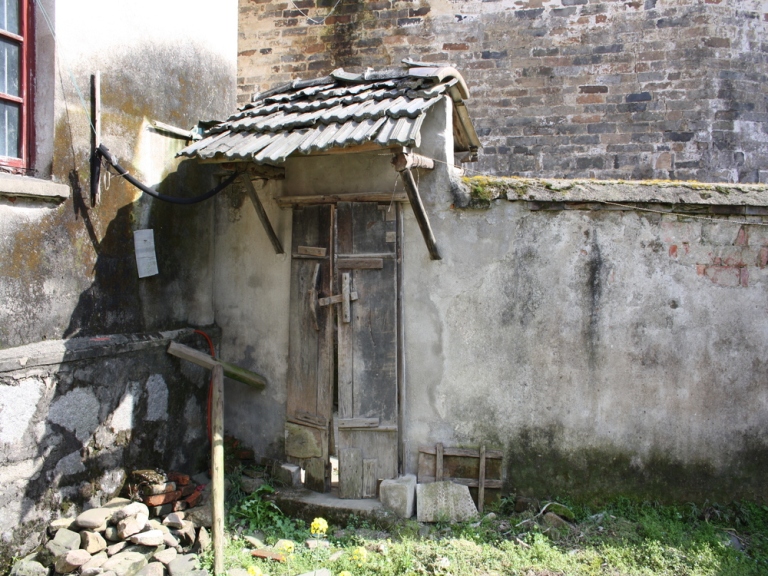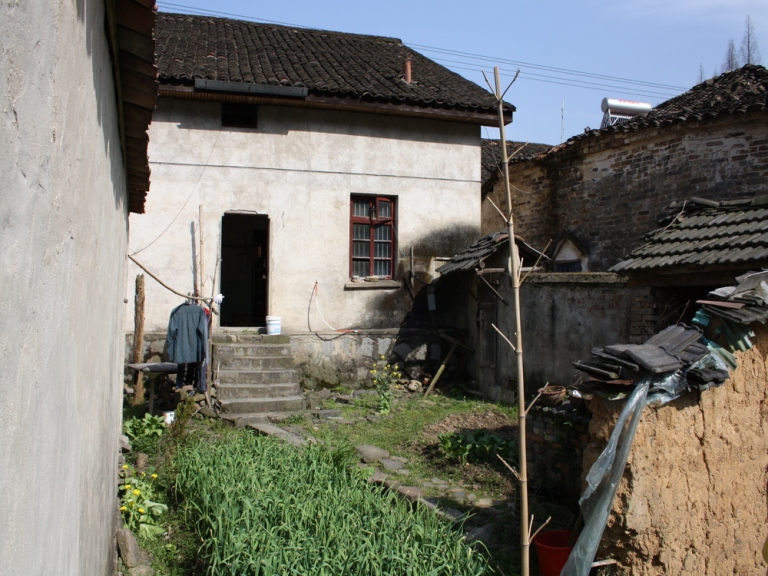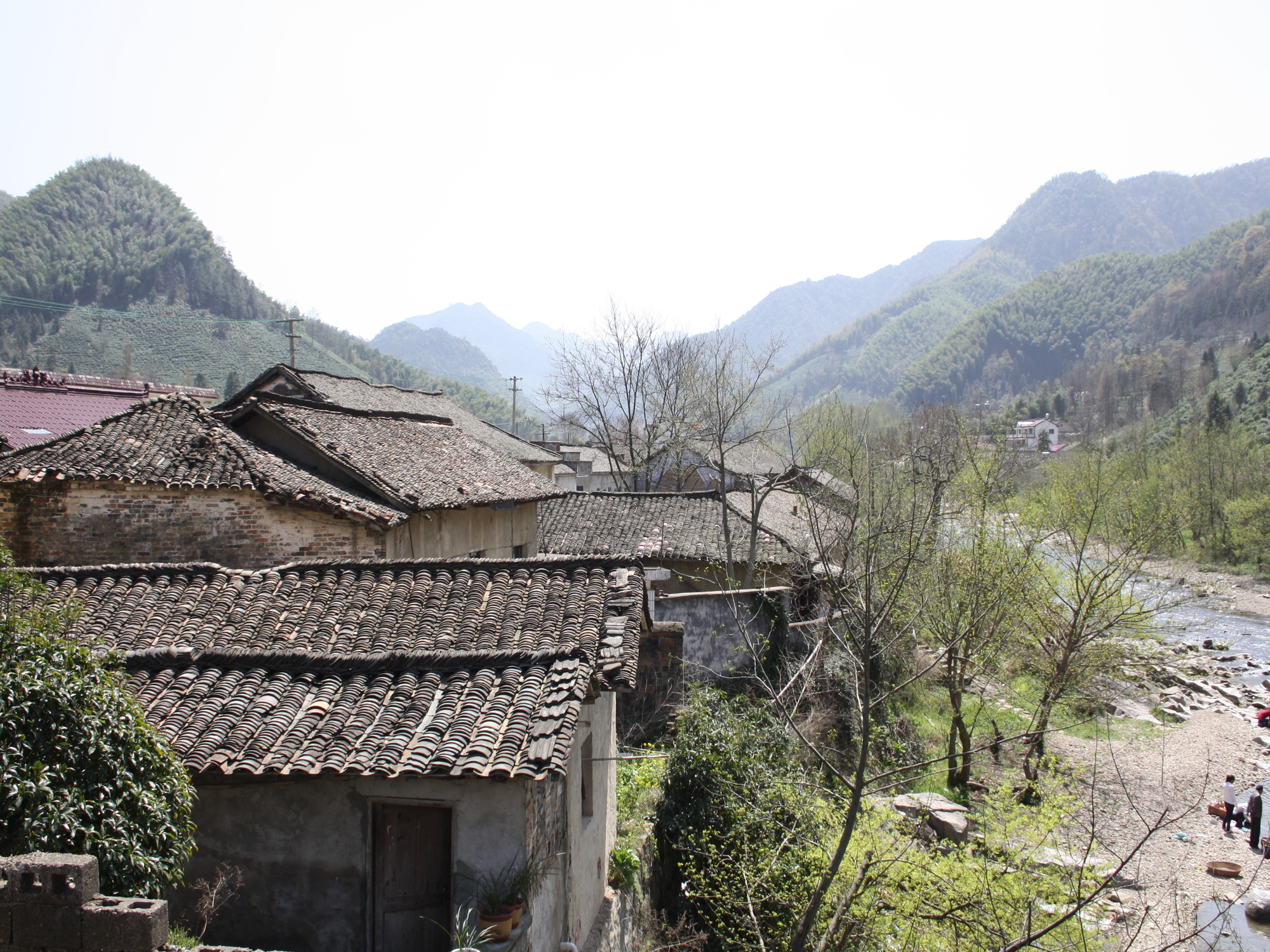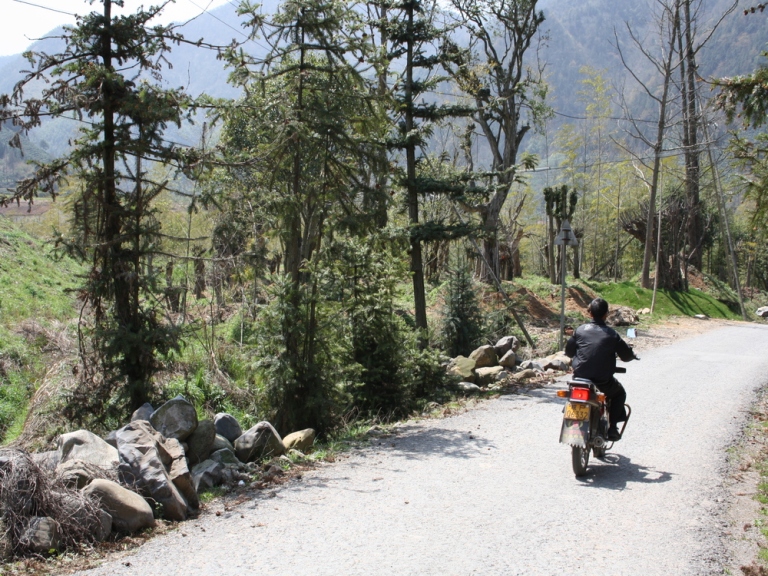
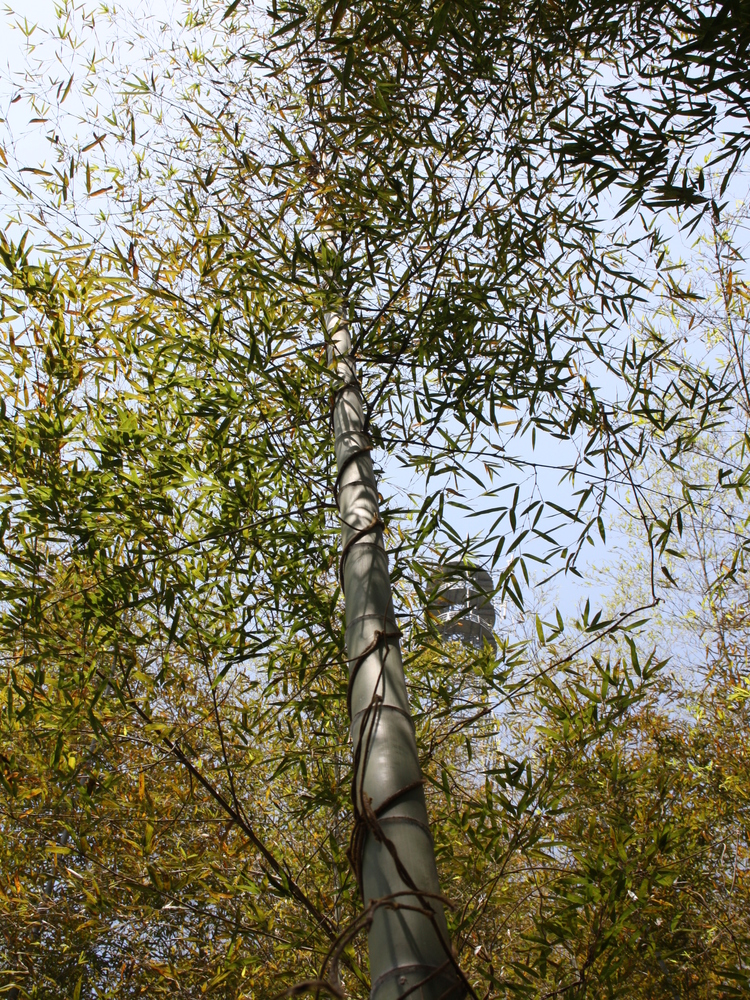
So this is about as rural as it can get, a tiny village surrounded by mountains, a counterpiece to the never sleeping metropolis of Shanghai or Hong Kong. The only running water comes from a tube directly from a crystal clear mountain creek, the home-cooked meals are heated by firewood, food comes from one’s garden and nearby forest whereas the dishes and clothes are cleaned by the river flowing past the tiny cottage. Where the tombs of our ancestors lie in the nearby mountains and fields and the bamboo trees are whispering to the wind. Where the house that gives shelter is built by the grandparents’ capable hands, where swallows can claim the roof as much theirs as it is yours, and where the toilet is essentially just a hole in the ground. It is where it is peaceful and quiet, where nature is as much part of home as the animals living in the back yard.
Except for tea season. Then the village comes alive. During early april, workers from other villages and regions flock into the quiet and take up every empty chamber and room, working from 4am till late at night to gather the precious leaves. It is then dried and roasted by hand in a large metal wok (by by hand I mean by hand, no spatula or other devices used). People come out of their houses to examine and discuss the quality of tea and gossip, and of course, to have a cup of delicious, freshly brewed tea.
But things have changed during the past few years, and things are still changing. When I first visited (I was almost six), the roads were still poor and the serpentines winding through the mountains had no railings whatsoever. Each time we approached a curve, the driver would honk and we would listen carfully for a responding honk to hear if there was another vehicle coming towards us. In 2012, red and white posts were erected to mark the borders of the road and the beginning of the abyss, and mirrors can now be found in front of every corner. In 2013, the first public bus set his wheel on Ding Xi’s ground. 40 years ago, there were no roads at all and the only way to the next town was on your own two feet.
During my second stay in the village, I was sad to see a huge pile of plastic trash next to the little river, and shocked to see plastic bags swimming by instead of fish. During my third visit, the trash mountain disappeared.
Right now, with the majority of Chinese population living in big cities with well over 1million people, some of them search for the peace and quiet, for the good old simple times. They come into the village to see how the people there live, and the village responds by engaging in tourism and opening hotels and restaurants and offering tours and trips. I really wish to see the village thrive, but am worried to discover that the same places I explored and played at is now only accessible with an entrance fee. I hope that there is a way out of poverty without destroying the charm and simplicity and peace and quiet of this truly special place.
